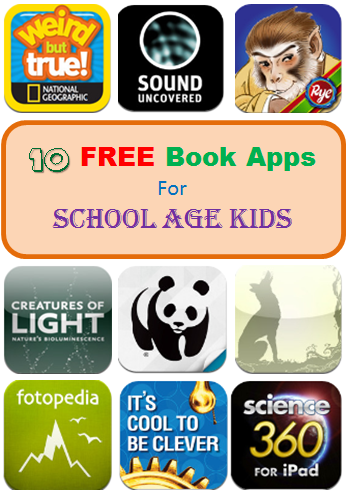
- #Apps for book reviews for kids full#
- #Apps for book reviews for kids android#
- #Apps for book reviews for kids free#
Consult resources such as Common Sense Media for guidelines and reviews about age-appropriate apps. Additionally, an open-ended, responsive, choose your own adventure-style app is more likely to educational than one that is linear.īefore choosing an educational app for your child, do some research. Earn badges by reading books and using app features. See your notes and highlights at any time in Sora, or export them to PDF, CSV, Google Drive, and more. They should actively engage your child and connect the content to their existing knowledge. Assigned books show up automatically, and expire on a due date set by the school. Some apps are available for a monthly or yearly subscription fee, which can range from approximately $5 to $10 per month.Įducational apps for preschoolers should require them to do more than just swipe, watch a video, or push a button. For more information or independent reviews, we suggest consulting common sense media. While most are (free) or cost a few dollars, a few are quite expensive.
#Apps for book reviews for kids free#
Other apps don’t have a free version and can be downloaded for a one-time cost, usually in the range of $1 to $4. In addition to traditional books and workbooks, as well as instructional websites, thousands of apps are now available to help students with reading and writing skills.
#Apps for book reviews for kids full#
If you want to use the premium version and get full access, you can make in-app purchases.
#Apps for book reviews for kids android#
Here are the best reading comprehension apps: Rivet Better Reading ( iOS / Android ): Rivet is a free reading app that uses points and visuals to keep your child engaged. Some educational apps for preschoolers are free to download, but those versions sometimes offer limited features. Some of these apps, like the Voice Dream Reader text-to-speech app, can also be used as accessibility tools for kids who have trouble reading. Īpps may even do more harm than good when they take children away from interacting with their caregivers and other children. According to the American Academy of Pediatrics (AAP), the majority of apps advertised as educational “show low educational potential, target only rote academic skills (eg, ABCs, colors), are not based on established curricula, and include almost no input from developmental specialists or educators.” How Much Should Educational Apps Cost? Ideally, you should engage with media alongside your child to help them understand what they are seeing and apply what they learn to the real world. Toddlers 18 months to 24 months can start to enjoy some screen time with a parent or caregivers, and by ages 2 and 3, kids should watch no more than one hour a day.

The AAP recommends no screens for children younger than 18 months with one exception: video chatting.


 0 kommentar(er)
0 kommentar(er)
